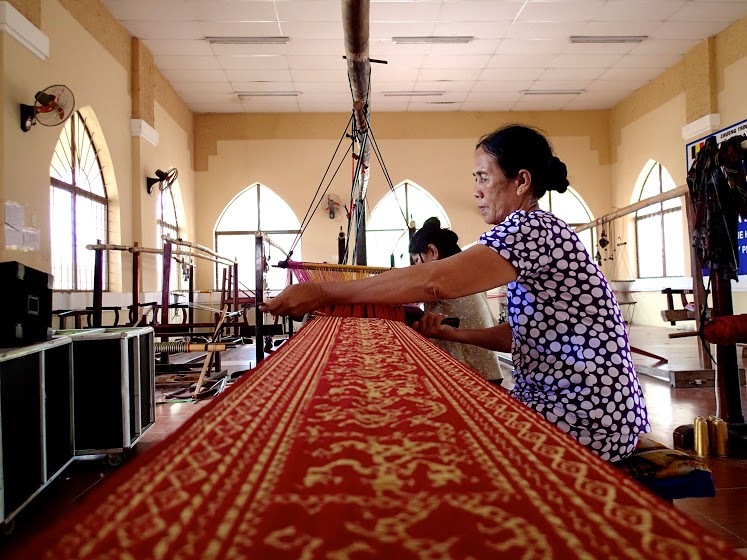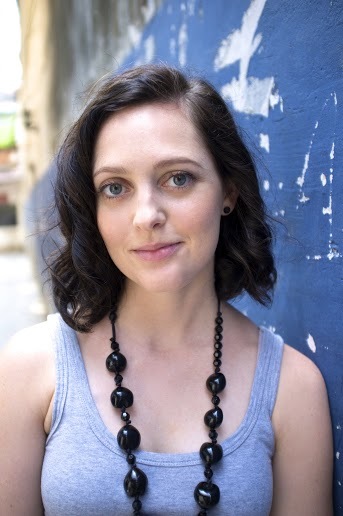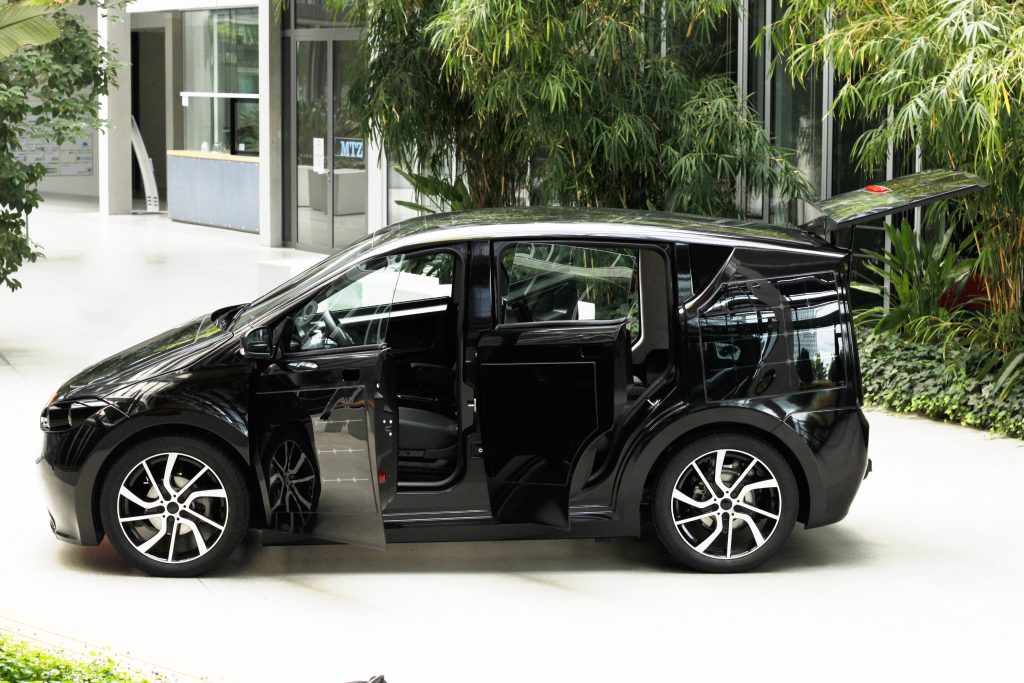In an age of fast-fashion there is growing concern for the preservation of artisan cultures and techniques. We are slowly coming to our senses and starting to realise the benefits of supporting local artisan cultures and they are starting to become a branch of luxury fashion.
Danica Ratte, founder and sustainable designer at Wild Tussah, has built her business model around the preservation of artisan culture. By generating sales for artisans, she is helping to preserve a culture that has permeated throughout thousands of years and countless generations. We spoke to Danica to further understand Wild Tussah’s ambition and sustainable mission.
Q: How did the idea for Wild Tussah originate? And how does sustainability fit into the equation?
DR: Wild Tussah was formed after I went on a 5-week trek through Southeast Asia, and became good friends with my Black Hmong tour guide in Sapa, Vietnam. She had explained to me that in her culture, ancient textile-making was on the verge of going extinct. This triggered the idea for me to move to Vietnam for a year and work with these artisans directly to help them preserve their culture, while bringing it to the rest of the world through modern design.
Wild Tussah’s main focus is on the culture preservation side of sustainability. We also are providing jobs in remote communities, are focused on transparency, make sure we know our suppliers and design with quality in mind to outlast fast fashion.
In the photo: Danica Ratte Credit: Wild Tussah
Q: How does Wild Tussah adhere to its values and mission while also staying competitive? Is there a unique business model that you use?
DR: Originally we started off focused on offering traditional textiles from Vietnam in the form of our Wild Tussah-designed handbags. However, we found there was a need for other designers and crafters to have access to these beautiful materials, so we expanded into making these weaves available by the yard, as well as designing home interior products, such as pillowcases, table runners, wallhangings and ceramics. Expanding our product line and providing more services were key for us.
Q: Are there any unique challenges for sustainability in your industry? How does Wild Tussah overcome these challenges?
DR: Anytime an individual is consuming, they are not being completely sustainable, so I’d say the biggest challenge is being 100% sustainable. I’ve never come across a product that is completely created in a way in which it doesn’t leave a footprint on the earth. Therefore, as a designer it is important that you stay focused on your mission and do your best to make as many stages of the creation process positive for the environment and its people. I like to see each individual designer as a warrior; making positive changes and tackling global issues little by little.
Another big challenge is creating a product in a cost-effective way that is still high quality, competitively priced and pays for the operations of the business, while competing against luxury brands that have been around for many years. This is always a work in progress for us and comes down to creating great partnerships with our suppliers and customers.
Q: What are some of the criteria or things Wild Tussah looks for when finding and choosing its artisan partners?
DR: We partner up with artisans who take pride in their culture, who are happy to share their stories and who have weaves they’ve created traditionally that they’d like to contribute to our online store – partnership and willingness to work together is key!
Currently, we work with Lu, Cham and Hmong people; each came to us at Wild Tussah in different ways.
We first started working with the Lu after I came across this beautiful Lu weave in a local Saigon shop. No one there could tell me what ethnic group it belonged to, so after doing a lot of research and speaking to my Black Hmong friend, we were able to figure out who it was from. Lu weaves are stunning in person – very modern and elegant looking compared to other weaves.
Next I decided to work with the Cham as I had met a Cham weave store owner who had a passion for her culture. Her enthusiasm for this traditional handicraft really lit a fire in my belly. Her son, Jaka, was also able to give me a tour around their local village and introduce me to other weavers in their community.
Lastly, I added Hmong weaves to my shop because they practice an amazingly intricate dyeing process for the hemp and cotton threads they use, which very few ethnic groups have been able to maintain.
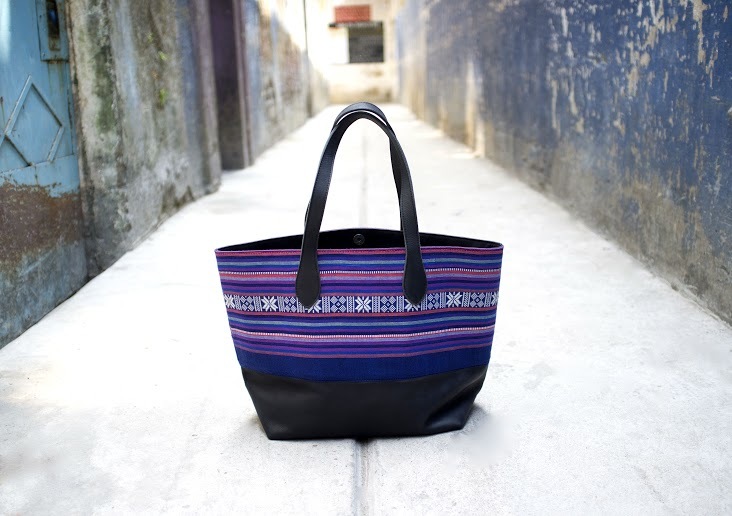
In the photo: Artisan handbag Credit: Wild Tussah
Q: Were there any major milestones in your journey to where you are today? Where do you see the direction of the company headed in the future?
DR: The biggest milestone thus far has been when I went back to northern Vietnam this past July to shoot a short documentary on the local people and women empowerment. This has been on the cards since day one, so it was amazing to see it come to light! My production crew and I stayed with a Black Hmong woman and her family for a week and captured pretty much everything, but a live birth! Her parents are amazing; her father is a Shaman and her mother an Herbalist. The family had a big reunion, wearing all of their traditional clothing, and there was even a funeral for the passing of an older village lady. The focus is on the young Black Hmong woman’s position in society, and how she is now the breadwinner of the family after learning how to speak English and becoming a trek guide. We are looking to release her story this upcoming year. If you’d like more information on it’s release and to stay up to date, feel free to shoot me a message!
In the future, I see Wild Tussah expanding to other countries outside of Vietnam in places like South America! Stay tuned.
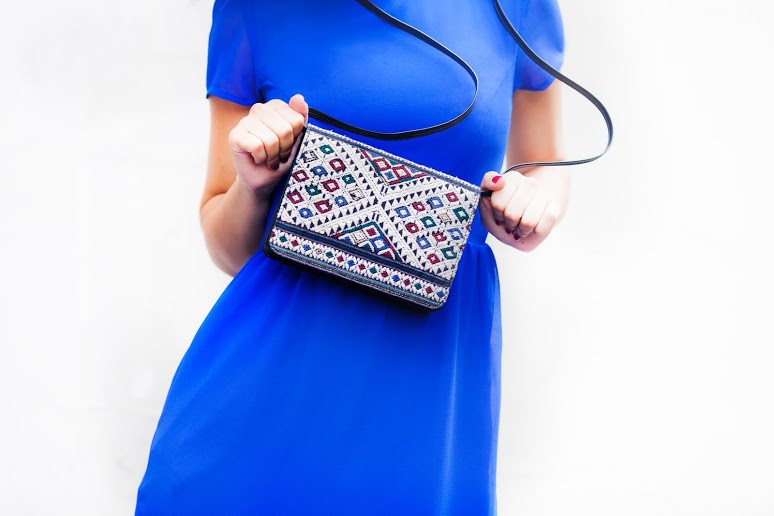
In the photo: Clutch handbag Credit: Wild Tussah
Q: What do you think is the future of sustainability, particularly relating to your industry?
DR: As the world is becoming increasingly more global and transparent, I believe that brands are going to be held more and more accountable for how they produce. Catastrophes, like the factory collapse in Bangladesh, are no longer easy to hide. Therefore, organisations are having to take responsibility for their actions.
We have the ability now to easily access information via a quick search on Google, watch powerful documentaries online and hear stories of those across the world who have to bear the brunt of unethical business practices. We have the ability to make educated buying decisions and join together; becoming less fragmented in what we expect from our brands.
Besides these organisations being held more accountable, I also see technological advancements within the fashion and textile industry, such as 3D printing and new types of fibres, leading to a more efficient and sustainable world.
Editors note: The opinions expressed here by Impakter.com columnists are their own, not those of Impakter.com


